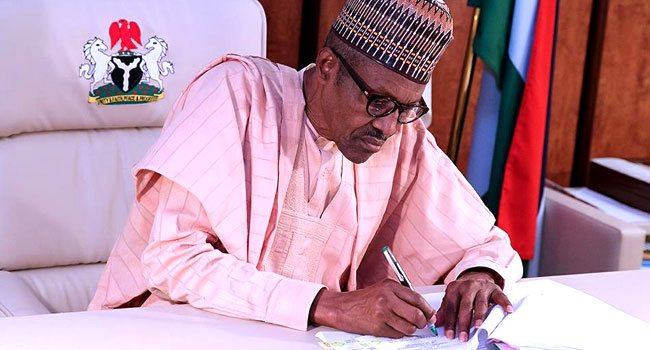President Muhammadu Buhari is under pressure to reject the reworked Electoral Act Amendment Bill 2022, it was learnt yesterday.
Sources said those pushing against presidential assent to the bill anchor their argument on “certain anti-democratic and discriminatory clauses”.
But, if signed and it becomes law, political parties will be expected to submit the names of their presidential candidates by August 18 — six months before the date of the presidential election.
According to the Independent National Electoral Commission (INEC) timetable, the presidential election will hold on February 18, 2023.
Going by the provision of the reworked bill sighted by The Nation, on the date of submission of names of candidates, primaries for National Assembly, governorship and presidential candidates will hold between July and mid-August.
A source said: “The President may still reject the bill because of ‘vendetta and anti-democratic clauses’ in the reworked Electoral Act Amendment Bill 2022.
“We may end up using the Electoral Act 2010 (as amended) for the 2023 general election because of strange clauses.
“For instance, it is illegal to exclude political office holders from primaries. By implication, ministers, commissioners and others cannot participate in the electoral process.
“Also, the nation does not have the wherewithal for the use of the electronic voting machine. Most politicians in the All Progressives Congress (APC) and the Peoples Democratic Party (PDP) are uncomfortable with it.”
He added: “The consensus clause is cumbersome and an attempt to hit back at state governors who used to impose candidates. So, we should expect a likely rejection of the bill by the President.”
Attorney-General of the Federation and Minister of Justice Abubakar Malami (SAN) said he received the reworked bill sent to him by the President for his advice, on Monday. He said he would propose to the President to sign the bill if the content is in the national interest.
According to other provisions in the bill, the electoral commission may use an electronic voting machine or any other voting device for the election.
Ministers, commissioners and other political appointees are barred from serving as poll agents during the election.
Besides, no political appointee at any level, be it a minister, commissioner or board chairman, can vote or be voted for during primaries.
Credit: The Nation


